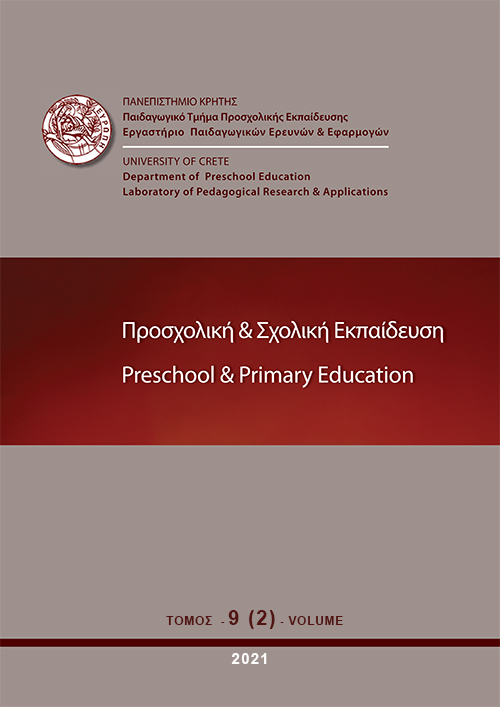Reflecting upon the Greek state-school teacher’s changing role in the 21st century: an ‘ecosystemic’ approach

Abstract
Abstract
In the 21st-century globalized context, education systems world-wide are challenged to respond to increasingly rapid and often unpredictable demands of the globalized society in an interdependent way towards achieving common education goals on a transnational level. In this globalized space, the Greek state-school teacher’s role evolves and changes towards thinking and acting both locally and globally, as an active participant of the global ‘ecosystem’. The purpose of this article is to reflect upon the Greek state-school teacher’s changing role in the 21st century taking into consideration the global educational context in conjunction with the changing state-school context in Greece as well as the characteristics, challenges and changes of the teacher’s role internationally identified, both conceptual and practical, through an ‘ecosystemic’ approach.
Article Details
- How to Cite
-
Tzotzou, M., Poulou, M., Karalis, T., & Ifanti, A. (2021). Reflecting upon the Greek state-school teacher’s changing role in the 21st century: an ‘ecosystemic’ approach. Preschool and Primary Education, 9(2). https://doi.org/10.12681/ppej.25834
- Issue
- Τόμ. 9, Αρ. 2 (2021)
- Section
- Articles

This work is licensed under a Creative Commons Attribution-NonCommercial-ShareAlike 4.0 International License.
Authors who publish with this journal agree to the following terms:
- Authors retain copyright and grant the journal right of first publication with the work simultaneously licensed under a Creative Commons Attribution Non-Commercial License that allows others to share the work with an acknowledgement of the work's authorship and initial publication in this journal.
- Authors are able to enter into separate, additional contractual arrangements for the non-exclusive distribution of the journal's published version of the work (e.g. post it to an institutional repository or publish it in a book), with an acknowledgement of its initial publication in this journal.
- Authors are permitted and encouraged to post their work online (preferably in institutional repositories or on their website) prior to and during the submission process, as it can lead to productive exchanges, as well as earlier and greater citation of published work (See The Effect of Open Access).


